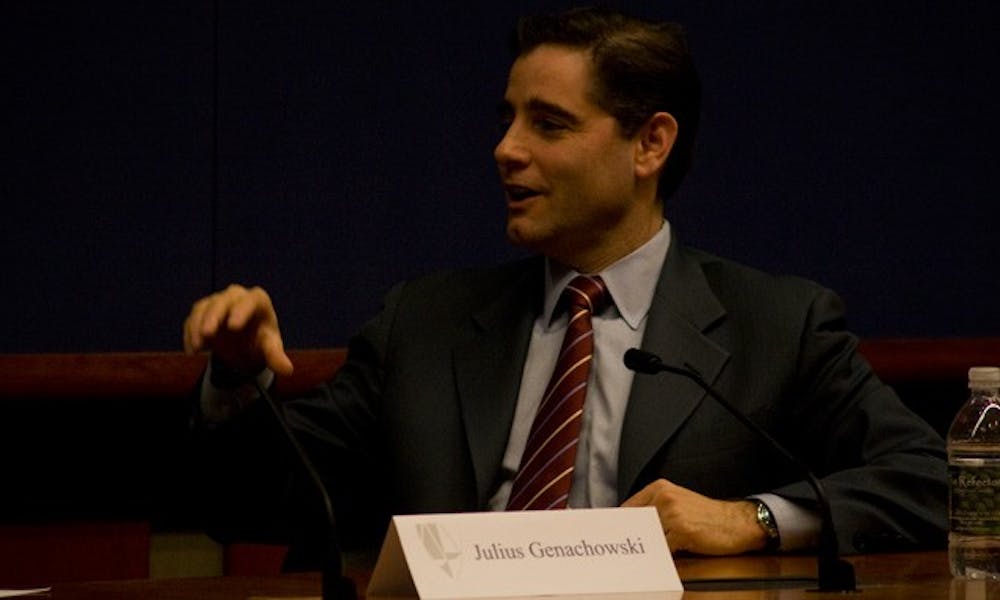Improving this country’s communication infrastructure is crucial to ensuring American success in the 21st century.
Federal Communications Commission Chairman Julius Genachowski discussed the challenges in advancing the United States’ communications platforms in a speech at the School of Law Friday. He also described the difficulties the country faces in outpacing global competition. His speech was the keynote address of the Duke Law Journal’s 41st annual Administrative Law Symposium.
In order for the US to be competitive in the 21st century economy, he noted, more Americans need access to high-speed internet.
“When it comes to broadband deployment and adoption, we’re just not where we need to be as a country,” Genachowski said. “There are still about 24 million Americans who live in parts of the country where they have no broadband infrastructure at all. We have over 30 percent of the country who could get broadband but haven’t signed up. We’re at about a 60 percent penetration rate... that’s just not good enough.”
The National Broadband Plan, outlined in the American Recovery and Reinvestment Act passed at the beginning of President Barack Obama’s administration, requires that the FCC improve Internet access and quality throughout the United States, especially in areas with lower populations. Genachowski, who was named FCC Chairman in June 2009, has made making more frequencies available for information transmission over the air a top priority. The frequencies are collectively called the spectrum.
“If you take the demand on spectrum that is projected to come over the next five years for smart phones, tablets and machine-to-machine devices... there is about a 35-times increase,” Genachowski said. “The amount of spectrum that we have at the FCC that we can put online for mobile broadband represents about a two-and-a-half or threefold increase over what we have now. That’s a scary gap.”
For the FCC, supplying these frequencies has sparked significant innovation over the past 50 years. Garage openers, baby monitors and more recently, Wi-Fi devices, have all resulted from the agency’s commitment to allocating spectrum. The most potential for future growth, Genachowski said, lies in mobile phones and health care devices.
With the increasing popularity of smart phones and tablets, the FCC is working to offer the communications infrastructure necessary to use these devices. Similarly, in the medical world, opportunities exist to advance remote diagnostics, improving electronic heart monitors and facilitating monitoring patients.
“I am incredibly excited about the opportunities of the broadband infrastructure that we see rolling out in the United States, wired and wireless, high speed, potentially connecting everyone,” Genachowski said. “The United States leading the world in innovation, leading the global economy in the 21st century as we did in the 20th, will only happen if we seize the opportunities of this extraordinary platform.”
Get The Chronicle straight to your inbox
Signup for our weekly newsletter. Cancel at any time.

